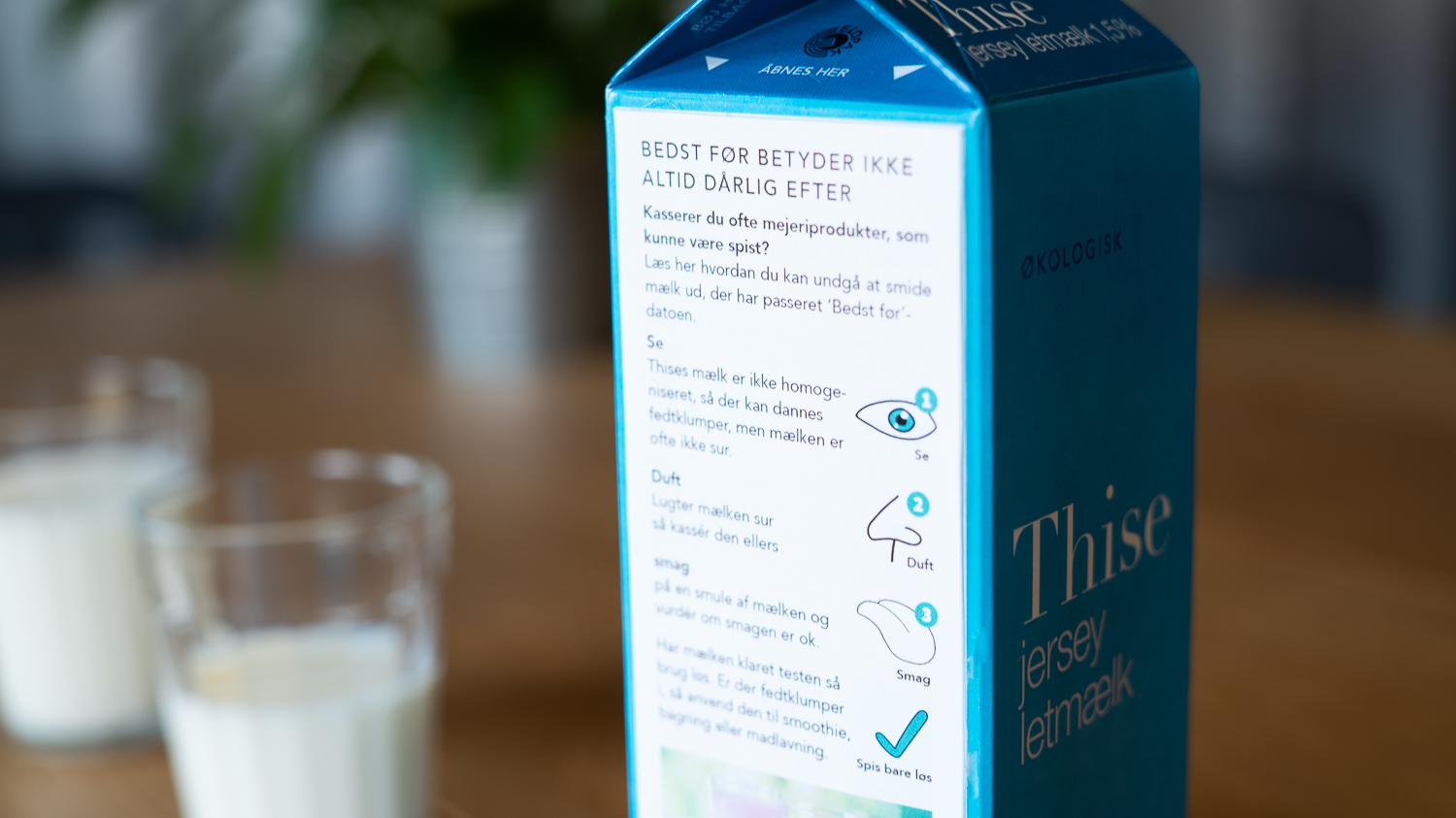Date label initiative cuts consumer food waste
Consumer confusion about the ‘best before’ date on food products is a major cause of food waste in Europe. In Denmark alone, consumers are responsible for more than half of the 814,000 tons of food that are thrown out every year. Quite often, the food they put in the bin is still safe and good to eat.
Danish company Too Good To Go decided to take up the battle against food waste. By working with leading food and beverage manufacturers, the goal was to change the way dates are labelled so consumers are in no doubt about whether food is safe to eat or not.
Two labels, different meanings
Manufacturers currently use two types of date label in Denmark. The ‘best before’ label is applied to foods that worsen in quality and become unfit for consumption long before they pose a health risk. In other words, the ‘best before’ date simply indicates the food’s minimum durability. But, if the taste, smell and look are fine, the food can easily be eaten after that date.
The ‘last date of usage’ label is used on foods that may pose a risk to human health if eaten beyond their shelf life. This means consumers must respect the date as the absolute end of shelf life. Beyond that, a product may be unsafe to eat even though its quality has yet to worsen.
Around a third of Danish consumers believe these two labels are identical – resulting in unnecessary food waste. In Europe, more than half of consumers do not know what ‘best before’ means.
70% of respondents say they will throw less food away because of new label saying ‘often good after’
Best before, often good after
Thanks to the Too Good To Go initiative, Arla Foods, Thise, Carlsberg, Unilever, Orkla Foods Denmark and many others have changed the date label on a wide range of products from ‘best before’ to ‘best before, often good after’. The idea is to help consumers think twice and trust their own senses before they throw food away.
According to the results from a survey, the campaign has made a difference. Almost 70% of respondents said they will throw less food away because they now know it may still be edible after the ‘best before’ date.


